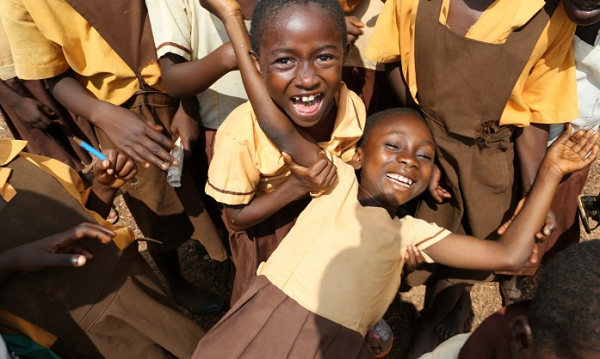
International Day of Girl Child highlights challenges facing girls
The celebration of the International Day of the Girl Child on October 11 provides more opportunities for girls and increases awareness of inequality faced by girls worldwide based on their gender.
This inequality includes areas such as access to education, nutrition, legal rights, medical care and protection from discrimination, violence and child marriage.
The celebration, which is an international observance day declared by the United Nations, largely focuses attention on the need to address the challenges girls face and to promote girls’ empowerment and the fulfilment of their human rights. Adolescent girls have the right to a safe, educated and healthy life, not only during these critical formative years but also as they mature into womanhood.
According to the United Nations, there are 1.1 billion girls in the world, and every one of them deserves equal opportunities for a better future.
“The girls are a source of energy, power and creativity. They can drive change and help build a better future for all. Yet, most girls face disadvantage and discrimination on a daily basis, and those living through crises are suffering even more.”
This year’s celebration
This year’s celebration of the International Day of the Girl, on the theme: “Empower girls: before, during and after conflict”, focuses on the need for the global community to work to empower girls before, during and after conflicts. This is particularly important since every 10 minutes somewhere in the world, an adolescent girl dies as a result of violence. In humanitarian emergencies, gender-based violence often increases, subjecting girls to sexual and physical violence, child marriage, exploitation and trafficking.
Adolescent girls in conflict zones are 90 per cent more likely to be out of school when compared to girls in conflict-free countries, compromising their future prospects for work and financial independence as adults.
Support systems
In Ghana, although gender parity has been achieved at the primary school level, girls still lag behind boys in secondary and tertiary education due to high dropout rates among girls at the higher educational levels. Reversing this trend calls for targeted interventions that not only keep girls in school but ensure they perform well.
An important intervention is the institution of support systems such as teacher mentoring and guidance and counselling in schools. Teacher mentoring and guidance and counselling are crucial student support services that aim at helping individuals discover and develop their educational, vocational and psychological potentials and thereby achieve an optimal level of personal happiness and social usefulness.
To effectively meet the needs of all students, it is essential that the foundations of these student support services are both systematic in approach and comprehensive in nature. This is important because as students mature and develop, any teacher mentoring programme must keep pace with their social, emotional, behavioural and cognitive changes and the relation of those changes to educational, career and societal changes.
CAMFED’s partnership
CAMFED has since its 2016 Mastercard Foundation Annual Learning Summit established a working partnership with the Guidance and Counselling Unit of the Ghana Education Service towards the delivery of quality guidance and counselling services to pre-tertiary students in Ghana.
One of the positive outcomes of the partnership has been the development and launch of a five-year Guidance and Counselling Strategic Plan for guidance and counselling service delivery in schools, a Teacher Mentor Training Manual for training guidance and counselling coordinators and counsellors, as well as a Civic Education Handbook for students.
Conclusion
As the world celebrates International Day of the Girl Child today, CAMFED and its partners such as the Mastercard Foundation would like to draw the world’s attention to the need to work towards SDGs Three and Four which relate to the attainment of quality education and gender equality respectively. The attainment of the goals is important for empowering girls and ensuring that across the world, they are able to raise their voices to fight for their rights and protection in all contexts. We cannot and must not fail them.
If effectively supported during the adolescent years, girls have the potential to change the world – both as the empowered girls of today and as tomorrow’s workers, mothers, entrepreneurs, mentors, household heads and political leaders.
